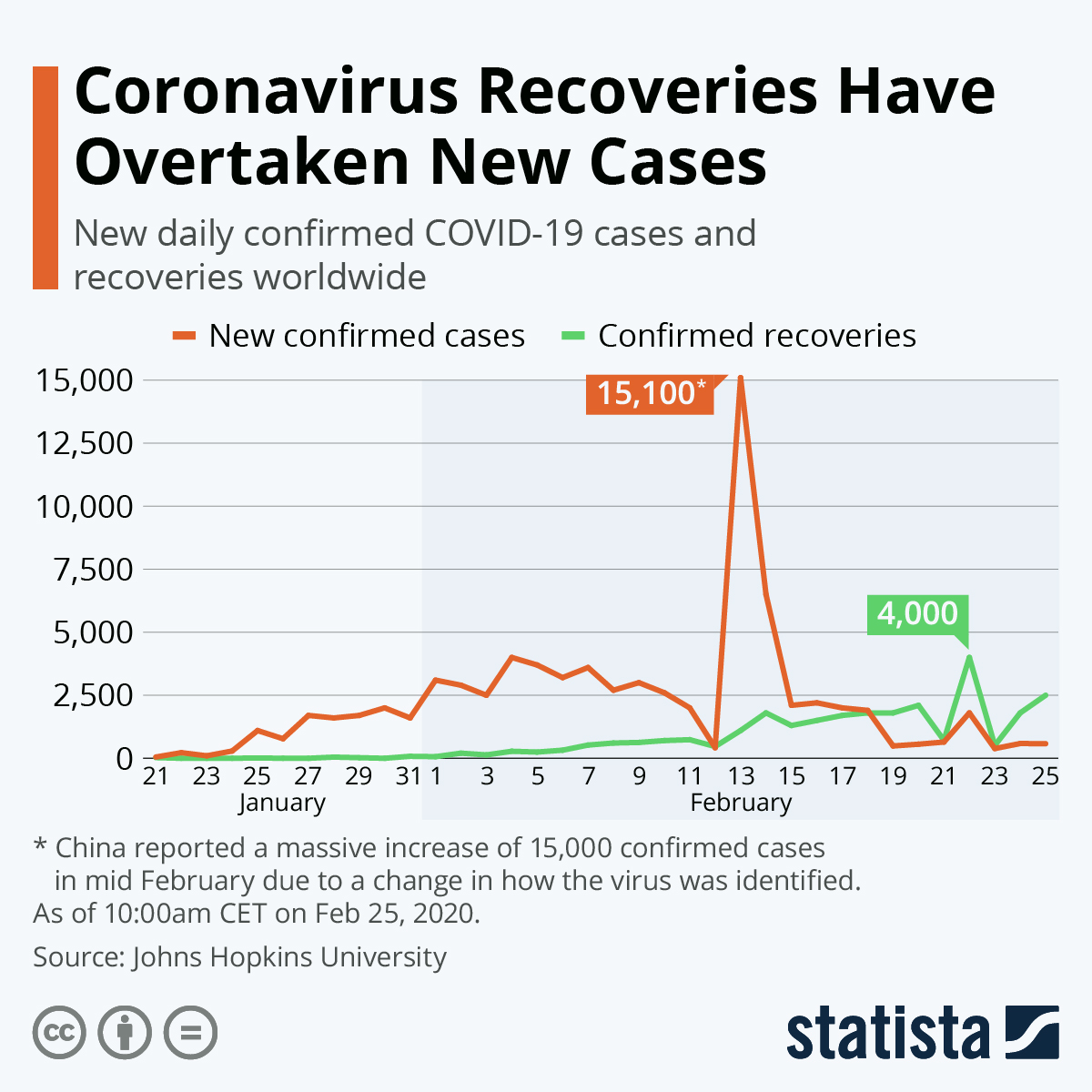Dr. Tedros Adhanom Ghebreyesus, the WHO's director general, played down fears of a global COVID-19 pandemic despite the emergence of new outbreaks of the virus in South Korea, Italy and Iran. He said that "using the word pandemic now does not fit the facts, but it may certainly cause fear", though he added that "the sudden increase in new cases is certainly very concerning". South Korea has now confirmed 977 cases, Italy has recorded 283 and Iran has reported 95. Despite the WHO's statement, many experts believe a pandemic is inevitable and that it's only a matter of time until they start using that term.
There have been some positive developments regarding containment of the disease, however, with the number of recoveries surpassing the total number of daily new infections for the first time. That occurred on February 19th, according to Johns Hopkins University tracking, when there were 439 new cases and approximately 1,800 recoveries. The trend has continued since then with fewer than 600 new confirmed COVID-19 cases each day and an even greater number of recoveries. The slowdown of the outbreak has occurred mainly in China where control measures such as quarantines, self-isolation and movement restrictions are finally having an impact.
Despite that positive development, the spike in cases in other countries suggests that the world is still approaching a tipping point in its attempts to limit the outbreak. There are now more than 2,000 cases of the coronavirus in over 30 countries outside China and while the WHO has said that it's too early to describe its spread as a pandemic, it did warn governments to be "in a case of preparedness". The Centers for Disease Control and Prevention in the U.S. is already preparing for a pandemic by coordinating with hospitals, pharmacies, supply chain partners and manufacturers to determine what medical supplies are needed to contain a serious outbreak.





















